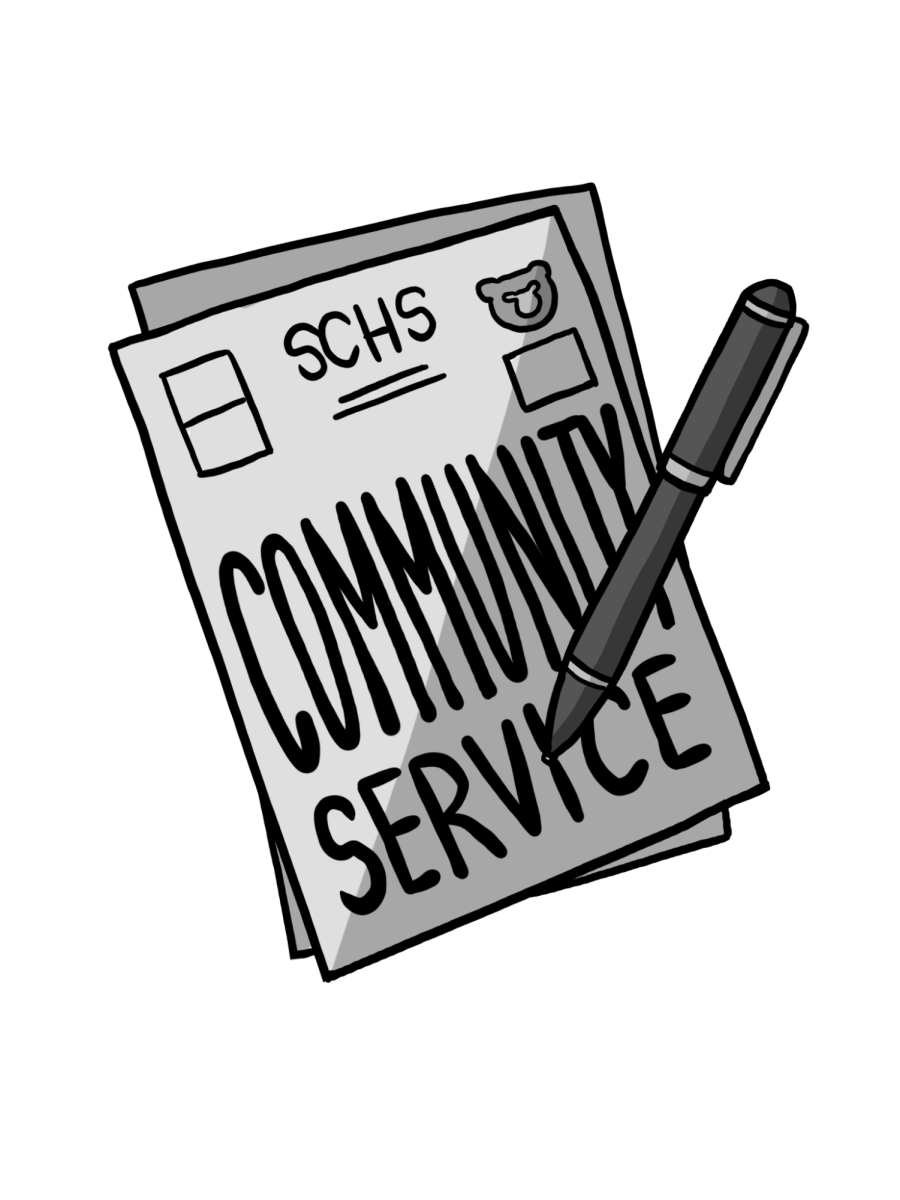Many on the SCHS campus can attest to their four year journey with community service experiences.
Counselor Jeanne Mustille has been working at SCHS for 26 years and in her time here, community service requirements have changed.
“Kids at first were not as enthusiastic about it, but I think right now it’s a known requirement. It’s not, ‘Oh my god do I have to do this.’ It’s ‘Okay, how am I going to get this done?’” Mustille said.
According to junior Yoselin Gonzalez, many students initially agree to community service due to its role in graduation requirements but are later left with a feeling of fulfillment toward the activity.
After volunteering for Link Crew, which helps incoming freshmen transition into SCHS, Gonzalez was able to continue her passion working with those younger than her.
“I wanted the freshmen to remember the Link Leaders, as in me, that they felt comfortable and safe,” Gonzalez said.
Along with supporting freshmen, Gonzalez appreciates the lessons that helped her in her daily life.
“Community service is fun… It has helped me with my social skills because I had to learn how to talk to a lot of new people,” Gonzalez said.
Another club, Beachy Works, allows students to earn service hours and help their community by encouraging students to clean up local beach environments. Beachy Works club advisor, English teacher Theresa Shaw-Iyer, noticed that many students sign up for service clubs because of its appeal to college.
“I think there are definitely students who have good intentions for making an impact. However, there are more students who sign up to get the hours, or because it looks good for college,” Shaw-Iyer said in an email.
After completing an hour or more of service, students are required to reflect on their experience in a written letter. Mustille has found that students are enthusiastic about their community service.
“When I read the reflections, 95% of the kids are so happy that they did it, and it opened them up to information about other people and organizations that they had no idea about,” Mustille said.
Shaw-Iyer, however, has seen that many students complete community service solely to fulfill their graduation requirement.
“When I hear students talk about community service it’s not, ‘I volunteered at the animal shelter this weekend. It was great to help others,’” Shaw-Iyer said. “Instead it’s, ‘I need to get my community service hours in. I want to get them done before the summer so I can enjoy my vacation.’”
While she believes true altruism within community service is rare, students are still actively participating and helping themselves and their community.
“Not being truly altruistic isn’t necessarily negative,” Shaw-Iyer said. “There can still be benefits to the community even if the motives aren’t completely selfless.”


